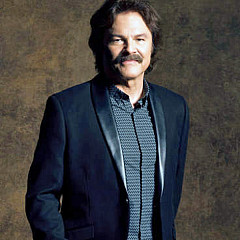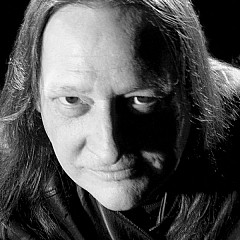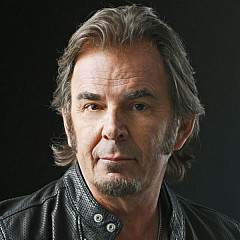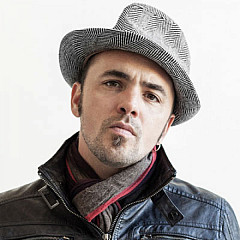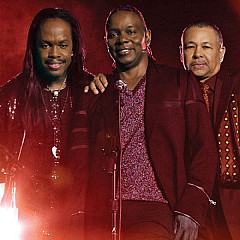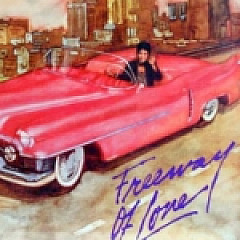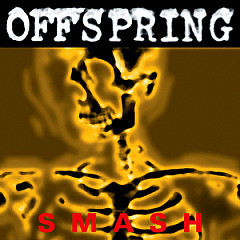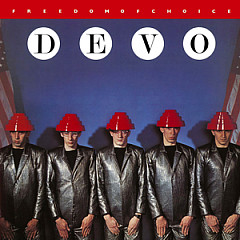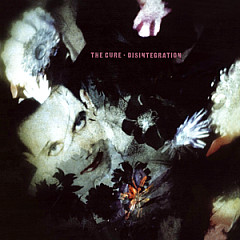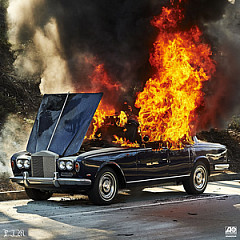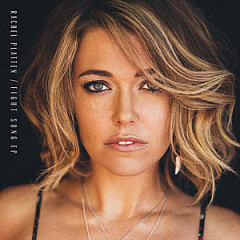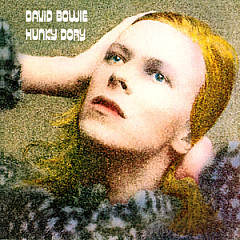 If anyone knows kids' music, it's Laurie Berkner. One of the most popular artists in the "Kindie rock" genre, Berkner has been entertaining toddlers and their parents for more than 20 years with catchy tunes like "We Are The Dinosaurs," "Victor Vito," and "Bumblebee (Buzz Buzz)."
If anyone knows kids' music, it's Laurie Berkner. One of the most popular artists in the "Kindie rock" genre, Berkner has been entertaining toddlers and their parents for more than 20 years with catchy tunes like "We Are The Dinosaurs," "Victor Vito," and "Bumblebee (Buzz Buzz)." In recent years, Kindie rock has exploded thanks in part to adult-oriented musicians migrating to the kids' scene after having children of their own. '90s favorites like Lisa Loeb, They Might Be Giants, Barenaked Ladies, The Verve Pipe, and Chris Ballew - aka Caspar Babypants, former frontman of The Presidents of the United States of America - have brought their alt-rock stylings to the genre, creating music that appeals to both kids and adults.
But Berkner was doing it long before it was cool.
In the early '90s, Berkner was a preschool music teacher by day and a rocker by night, playing bar gigs in the all-female cover band Lois Lane and the rock group Red Onion. But her day job proved to be her biggest musical inspiration. "The more I started working on material for children, the more I realized that it opened up creativity in me that I never knew I had," she explained.
Meanwhile, she started playing kids' birthday parties and selling cassette tapes of her tunes for tots. In 1997, she released her first album, Whaddaya Think of That?. The following year, she formed her own record company, Two Tomatoes. After her videos began airing on kiddie channels like Noggin and Nick Jr. and the animated series Sing It, Laurie! debuted on Sprout TV, Laurie Berkner became a household name for families with young children.
We spoke with Berkner about her path to becoming the Queen of Kids' Music, the challenges of writing songs for children, and her passion project - the Audible series Laurie Berkner's Song and Story Kitchen.
Laurie Berkner: Because it gave me a focus in a certain way. I felt like when I was writing songs for kids, I couldn't go off in a hundred directions. I had to choose one thing to write about, and that made the songs work.
When I was writing for "not-kids" or whoever else would listen, I found that it was very hard for me to have a clear message in the song, so I like that about writing for kids. I also had a lot of feedback because I was teaching a lot of classes so I was with young kids a lot. I could try a song and be like, "Oh, that didn't work" or "Hey, that really worked," and that's what helped guide me.
Songfacts: What do you think a common mistake is for people who are just getting into writing for kids?
Berkner: There are ways that music becomes less relevant to a kid, like if you're talking at a kid, it's harder to make it feel like it's their music. That can be in just the way the language is in the song itself.
If there are lots of references to things that aren't relevant to young kids, that also doesn't help. If you open up a possibility for a child to do something that feels natural and fun, like be an animal or something like that, I think you have a much better chance of getting them to connect to the song than to tell them to do something that you think they should be doing.
Songfacts: What is your overall philosophy when it comes to writing for kids? When you sit down to write a song, is there a common idea you keep in mind?
Berkner: I'm sure I do that subconsciously but I do think a lot about, If I were a kid, would this song feel like it was mine? Is there enough in it, is there something to engage me physically, emotionally, musically, rhythmically?
It's almost like writing a hook in a pop song - there needs to be something in the song that really makes it for kids. I think about things that way. I think you can definitely write songs for kids in other ways that are great, but that helps me a lot to focus and remember who I am writing this for.
My very first cassette tape back in 1997, I remember writing on a big piece of paper and putting it up in the studio: "Remember, it's about the kids." And that's been what helps me come back to it. "Wait, what am I writing this for?" or "What am I trying to do with this song?" And when I think about it, or remember it, it's, "If you were 4, what would you want this song to be?"
On a more thoughtful level in terms of trying to connect with kids, I try to write things not just that I would like, but what would help children really like themselves.
Songfacts: The one that comes to mind is "I'm Not Perfect," where you sing about not being perfect but doing your best. That's something that adults need to hear too.
That is something I think about a lot: If I were a child still, how would I want to be supported from what I know now as an adult?
Songfacts: Like that phrase, "Be the person you needed when you were a child."
Berkner: That's a great phrase. I like that a lot.
Songfacts: How did your rock friends react when you transitioned into doing kids' music, especially when you didn't see very many adult rockers doing that at the time?
Berkner: At the time, it definitely was a little bit uncool. I don't know that they were super critical, but I wasn't sure that people took me seriously as a musician. Just from my own lack of self-confidence, I felt awkward telling people that's what I did. Not as much friends as maybe the random person on the street, like some guy taps me on the shoulder and says, "Hey, is that a guitar, what kind of music do you play?" at the airport or whatever, and the reaction is like, "Ooooh, for kids? Hmm, that's nice."
But a few years into it, I started to look around, and I was like, wow, all my friends in college [Rutgers University, degree in psychology with a minor in art history] who were great musicians, there are very few of them making money by making music - they don't have a career in music anymore. The only other person I was really close to at the time that was doing music professionally was Marty Beller. He had been my drummer in my adult rock band and became the drummer in They Might Be Giants, and they were doing kids' music. There may have been a handful of other people that I wasn't so aware of, but I felt like Marty and I were the ones that had become musicians... like this was really our careers.
Then I invited Adam Bernstein to play with me. He was someone else who was working as a musician and a music teacher. He was another person I knew from my college days and he was my bass player for awhile. He and Marty had been in a band together for many years. He still does music.
But this has been a place where a lot of really good musicians have found that they can do exciting and fun things with music. It's easy to imagine that there's something less challenging about kids' music, but in some ways, it's definitely harder because you have a very disparate audience: you have both the parents and the children to connect with in your audience. There are fewer things that you can do in that space and still be very good.
Songfacts: At what moment did you realize you'd "made it"?
 The Laurie Berkner Band: Brady Rymer (bass), Berkner, (guitar/vocals), Susie Lampert, (keyboards), Bobby Golden (drums)
The Laurie Berkner Band: Brady Rymer (bass), Berkner, (guitar/vocals), Susie Lampert, (keyboards), Bobby Golden (drums)I kept doing birthday parties on the weekends because it was a way of actually connecting with different groups of kids while giving me some income, because I wasn't making quite enough from selling the albums yet. But I did have the feeling that if I really put myself into what I was doing, I could make a career out of it and keep it together. Then, it might have been five years later that I got on Nick Jr. for the first time. But there was this in-between when I was like, "I don't know if I'm going to be able to do this forever, but I'm doing it now."
Songfacts: You had to know things were going your way when you got a call from Madonna. [Laurie performed at a birthday party for Madonna's daughter Lourdes.]
Berkner: That happened in '99. That was actually that fall, right around the time that I stopped teaching. Yeah, things were great, but I had to figure out how these events would help me grow as an artist and make sure that I can make a living from this.
Songfacts: It's interesting, you started performing and writing for kids long before you had your own daughter. When she came along, how did that affect your music?
Berkner: Well, I definitely spent a lot of time with her when she was very little, making up songs and stuff. I put out an album called Rocketship Run when she was 3, and a lot of those songs were songs that came to my mind while I was with her. But I tried really hard to not focus in too much on writing songs just for her. I wrote lots of songs that were like her name over and over again that I've never recorded - songs that I just sang directly to her. But I did feel a little nervous, because when I was interacting with so many kids every week as a preschool music teacher and at parties and stuff, that really helped me. I had so much feedback and such a wide range of kids, so I got an idea of what they were liking, and what was working and what wasn't working.
So, when I suddenly was spending so much time with just one child, a very specific child who was mine, I felt a little nervous that I was going to start losing the connection I had with so many other kids. So, I tried to be very conscious of not falling into that.
Plus, I became a parent, so it was really hard not to write songs where I was talking to her. I noticed that a lot of parents, people who were musicians who already had kids and decided to write songs for kids, wrote them from their parental perspective, which is very hard not to do once you're a parent. At first I thought, Oh my God, I'm gonna stink at this once I'm a parent, I'm gonna lose that whole connection to really feeling what it's like to be the child, which is something that didn't really happen. But it is something that I had to watch. Sometimes I write from that parental perspective, but I do it as a choice.
Songfacts: What kind of music did you listen to growing up?
Berkner: When I was very young, a lot of musicals. Julie Andrews was my idol. I wanted her to be my mother, so it was like Sound of Music, My Fair Lady, Camelot, lots of Mary Poppins, and lots of other family musicals. There wasn't a whole lot of kids' music outside of the folk realm, so I listened to ones like Peter, Paul, and Mary, who had an album called Peter, Paul and Mommy that had "Puff the Magic Dragon" on it. Burl Ives had a record that we used to listen to. Then there was a man named Hap Palmer. I'm not sure if he's making new albums but you can still hear his music certainly, he had some songs that I still remember.
Then I got older and I started listening to things around the house like John Denver and Simon & Garfunkel. It developed as I got older but when I was a kid, it was a lot of folk and classical - we had classical playing all the time. My dad really loved folk and classical music, as well as opera.
Songfacts: Are you more likely to be inspired by music that is geared toward kids or toward adults?
Berkner: Oh, definitely adult music. I don't listen to much music that's geared toward kids anymore. Even before I had Lucy, I didn't listen because I didn't want to be affected by other kids' artists - I wanted to do what felt natural to me. When I had her, we did listen together and then that time went by really fast, and suddenly she moved on to Taylor Swift and then musicals and now she listens to Billie Eilish.
If I'm at the gym and I hear music or when I scroll through Spotify, I may hear something and realize, "Oh there's something about that bass line that makes me think I should pick up the guitar." Or listening to West African music, just the repetitive quality of that will make me think of something.
The thing that really inspires me involving kids, is the kids themselves - not so much other people creating things for kids, but listening to kids say something. I write a lot of songs that way, just hearing kids say something like "song in my tummy." There was a kid who said, "Laurie, I have a song in my tummy and it wants to come out" and I was like, "Oh, that's a great song!" And then there was a dad who said, "I'm gonna catch you, you better run, I'm gonna catch you, here I come!" and the kid was laughing hysterically. I said, "Okay, that's another song." So I try to listen for those things - well, that last one wasn't a child but usually I'm inspired by something kids will say.
 Songfacts: We recently talked to Brian Vander Ark from The Verve Pipe, and he told us that performing for kids is exhausting because you have to keep them engaged the entire time. Now, when you are in the recording studio, how do you bring that same level of energy in the studio compared to when you're out there doing it live?
Songfacts: We recently talked to Brian Vander Ark from The Verve Pipe, and he told us that performing for kids is exhausting because you have to keep them engaged the entire time. Now, when you are in the recording studio, how do you bring that same level of energy in the studio compared to when you're out there doing it live?Berkner: It's not the same at all to me. When I do it live, I do have energy but it's actually a little bit of an illusion because the kids are jumping and dancing around and I'm just priming them. I'm modelling some of it, which is tiring, but I feel like it gives me energy. Whereas when I'm in the studio, it all has to come from me - there's no kids.
In the studio, I can find new songs that are a little bit more relaxed and quieter and have a different level of energy that I don't need at the concerts.
Songfacts: Yeah, you did the album of lullabies that was more laid back. That's been awhile now. I think your daughter was still pretty little when she sang "I Gave My Love A Cherry."
Berkner: Yeah, she did sing with me on that. She was 8 or 9.
Songfacts: You've also collaborated with a lot of people, like Ziggy Marley and Danny Weinkauf (of They Might Be Giants). Who would be your dream duet partner?
Berkner: Oh gosh, there are so many amazing people. I'd really love to do a duet with Lin-Manuel Miranda. I respect him tremendously. I also think Aimee Mann would really be fun. I just love her music. Joan Armatrading and Joni Mitchell also are some old idols of mine, and Paul Simon - there are just a lot of people that have been doing this for so long who are such poets! I feel like they're all very different from me, so that could also be a really good learning process for me. I'm sure there are like 20 other people. There are so many great musicians out there that I have not had a chance to connect with.
Songfacts: I'm pretty sure that Paul Simon was on that same album with Ziggy Marley that you were on.
Berkner: He was! Yeah, but unfortunately that didn't mean that we would get to do something together.
Songfacts: Oh yeah, there was no overlap with you guys. The duet you and Ziggy did on Family Time was "Future Man, Future Lady." Did you record it together or did you do your parts separately?
Berkner: It was completely separate. He was in California and I was in New York.
Songfacts I guess that that's how it happens most of the time. But in my head, I picture something totally different.
Berkner: [laughs] I know. It would be nice, but unfortunately he had already recorded a lot of that song. He reached out and was like, "Would you like to sing on this?" So I went into the studio and did what I thought I should do, and then he took what I sent him and put things together with his engineer. I got to hear it later and I was like, "Woo hoo, sounds good."
Songfacts: And then you guys collaborated again on one of your own projects.
Berkner: There was another duet, yes. On Superhero there's a song called "My My Marisol" where there are two characters, Minimort and Marisol. One is short and one is tall, and he sang the male part.
It was a song that my dad used to sing to me when I was very little. Then, my parents moved out to San Francisco, and he would talk about how Daly City - a community right outside of San Francisco - was apparently what inspired Malvina Reynolds to write "Little Boxes." I would go and visit them and when we would drive past there, we would sing that song. Anyway, I felt a lot of connection to it.
Then suddenly they changed their mind and said yes we're gonna use it and it's gonna be on this episode and, and I was like, "Yeeaaahhh!" So, very exciting.
Songfacts: Did anybody pick up on it that it was you?
Berkner: Yeah, definitely in social media. I would see, "That sounded like Laurie Berkner," or people would write in to me and say, "Okay, I know this is going to be really weird, but I was watching Weeds and it sounded like it was you."
It's funny because now I actually get, "Are you the voice of Alexa?" People have always sent me things like, "I heard someone on a commercial and I thought maybe it was you, was that you?" But this time it actually was.
Songfacts: What projects are you working on now?
 Berkner: I'm recording more songs for a new album for later this year. We're doing things slowly since we can now that there's more streaming platforms that make it so easy for you to put out one song at a time, so that's been really fun.
Berkner: I'm recording more songs for a new album for later this year. We're doing things slowly since we can now that there's more streaming platforms that make it so easy for you to put out one song at a time, so that's been really fun.Back in November I released this audio series with Audible called Laurie Berkner's Song and Story Kitchen. That was a really wonderfully challenging project for me because it was a real departure in that I wrote ten 15-to-25-minute-long audio stories with tiny mini-musicals woven in. I developed each chapter similar to a podcast. You hear a knocking on the door and then I invite the listeners in, who are my kitchen kids. I'm in the kitchen with Thelonious Pig, who is the pig that sits on my head, and we are making something that sparks a memory of a story about our friends who live in the magical land of Juniper Fields - we get there by having Thelonious jump on my head and the kitchen kids put an animal on their head when they're listening. Then we tell stories in that land, which is with Oscar BeeBee the bumblebee, Victor Vito and Freddie Vasco who are our Ferret cousins. Then there's Tallulah Jones the dinosaur and Layla Meeska who is a mouse, like a mouse in my toolbox because she's a builder.
So the story, which includes songs, gets told in Juniper Fields and I narrate it. Then we come back into the kitchen where we finish making the food that sort of inspired the story and then say goodbye. There are 10 of those chapters and it's about four hours of audio and another hour or so of music. It was a huge project to do and I loved it. I would love to do more of that and I'm trying to get people to know it exists, because everyone who has heard it seems to really like it and that feels great.
March 7, 2019
Find Laurie Berkner's Song and Story Kitchen on Audible and Amazon.
Catch up with The Laurie Berkner Band at https://www.laurieberkner.com
Further reading: We Will Rock You (To Sleep): Pop Stars Who Recorded Kids' Albums
Photos: Jayme Thornton (1,2), Steve Vaccariello (3) Todd Owyoung (4)
More Songwriter Interviews

